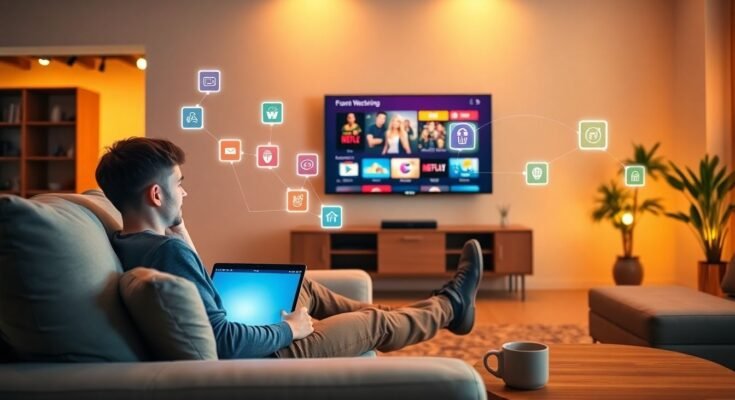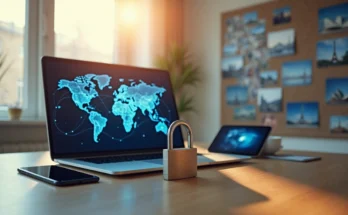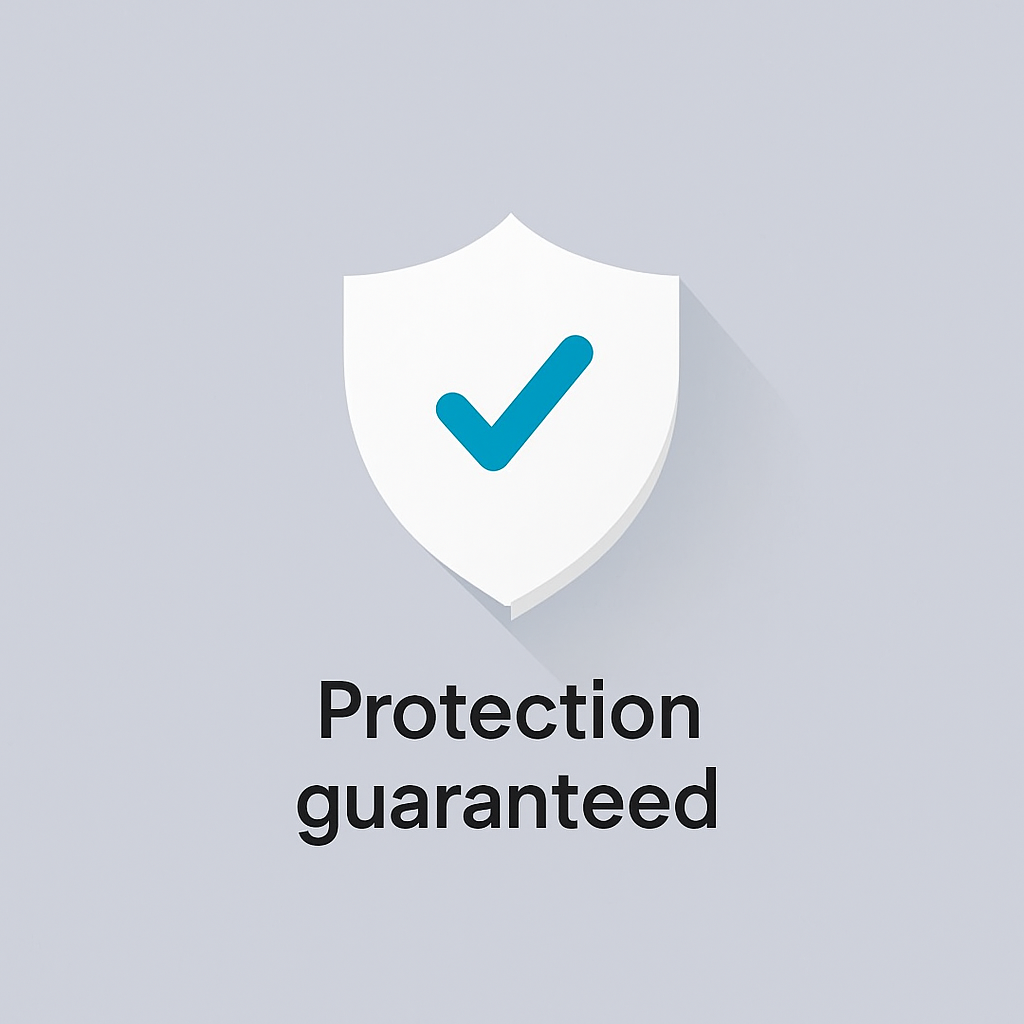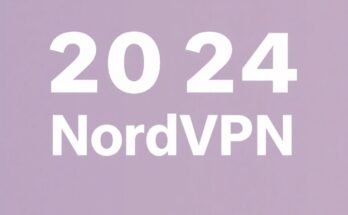Introduction
Ever tried how to use vpn for streaming your favorite show while traveling abroad only to be met with that dreaded message — “This content is not available in your region”? You’re not alone. Streaming platforms like Netflix, Hulu, BBC iPlayer, and Disney+ often lock content behind regional walls.
Here’s where a how to choose for streaming ) becomes your golden ticket. Whether you want to watch American Netflix from Europe or keep your ISP from snooping on your streaming habits, a VPN helps you unlock content, stay private, and stream buffer-free.
In fact, over 50% of streamers report using a VPN at some point to access more content or enhance security. In this guide, we’ll show you exactly how to use one, which VPNs are best for streaming, and how to stay safe doing it.
What Is a VPN and How to use vpn for streaming ?
A VPN (Virtual Private Network) is a tool that encrypts your internet traffic and hides your real IP address. It routes your data through secure servers located around the world.
🔐 How does that help you?
- Hides your location – Websites think you’re in the country of the VPN server.
- Encrypts your connection – Prevents ISPs, hackers, and advertisers from tracking you.
- Unblocks streaming platforms – Allows access to region-locked content like Netflix US or BBC iPlayer.
It’s like teleporting your device to another country, without leaving your couch.
Why Use a VPN for Streaming?
✅ Access Geo-Restricted Content
Different countries get different versions of platforms like Netflix, Prime Video, and Hulu. Want to watch The Office on Netflix US while in Germany? A VPN lets you do that.
✅ Bypass ISP Throttling
Many ISPs slow down your connection when they detect heavy streaming. A VPN hides what you’re doing online, preventing them from slowing you down.
✅ Protect Your Privacy
Even when you’re just binging Netflix, your IP address and activity can be tracked. A VPN gives you anonymous browsing and peace of mind.
Real-World Examples: how to use vpn for Streaming
- Case Study: Emma lives in Spain but loves US crime documentaries. With NordVPN, she connects to a New York server and accesses Netflix US without interruptions.
- Stat Drop: VPN use among streamers grew by 30% in 2024, with privacy and geo-access cited as top reasons.
Choosing the Best VPN for Streaming
Not all VPNs are created equal. Some are painfully slow. Others get blocked by streaming services. Here’s what to look for:
🎯 Key Features to Look For
- High-speed servers: Buffer-free HD or 4K streaming
- Global server coverage: Especially in the US, UK, Canada, Japan, and Germany
- Streaming-optimized servers: Labeled as Netflix, Hulu, etc.
- No-logs policy: Protects your online identity
- Kill switch: Cuts off internet if VPN drops, keeping you safe
🥇 Top Recommended how to use VPN for Streaming
1. NordVPN
- Fast, stable, and great at unblocking Netflix, Hulu, Disney+
- 5,000+ servers in 60+ countries
- Includes SmartPlay tech for streaming
2. ExpressVPN
- One of the fastest VPNs for 4K streaming
- Great for unblocking BBC iPlayer, HBO Max
- Based in privacy-friendly British Virgin Islands
3. Surfshark
- Budget-friendly with unlimited device connections
- Consistently bypasses geo-restrictions
- Great for families or multi-device users
💬 Expert Insight
“A good VPN doesn’t just unlock content — it also protects your data from prying eyes,” says Jane Doe, cybersecurity consultant.
How to Set Up a VPN for Streaming
Getting started is easier than you think. Here’s a quick setup tutorial:
🛠️ Step-by-Step Guide
- Choose a VPN – Sign up for one of the top-rated providers.
- Download the app – Available for Windows, Mac, Android, iOS, and smart TVs.
- Install and log in – Use your credentials to access the dashboard.
- Connect to a server – Pick a country that unlocks your desired content.
- Test your IP address – Visit
whatismyipaddress.comto confirm location change. - Start streaming – Open Netflix, Hulu, or your platform of choice and enjoy.
🔧 Tips for Best Performance
- Use a server closest to the streaming service’s origin (e.g., US for Netflix US)
- Clear browser cache & cookies before logging into platforms
- Enable the Kill Switch for uninterrupted protection
Troubleshooting Common VPN Streaming Issues
Problem: Still seeing geo-blocked message?
Fix: Disconnect and reconnect to a different server in the same country.
Problem: Streaming is slow or buffering?
Fix: Switch to a less-crowded or closer server.
Problem: VPN detected by streaming site?
Fix: Use streaming-optimized servers. Some VPNs label these clearly.
Problem: IP leaks?
Fix: Enable DNS/IPv6 leak protection in your VPN settings.
Best Practices for Legal & Safe Streaming
⚖️ Stay Within Legal Limits
- VPNs are legal in most countries — but streaming copyrighted content not available in your country may violate terms of service.
- Always check the laws in your country.
🚫 Avoid Free VPNs
- Many free VPNs log your data, sell it, or offer slow, unreliable connections.
- Stick with trusted, paid providers.
🔀 Use Split Tunneling
- Want to stream with VPN but browse normally? Use split tunneling to route only your streaming traffic through the VPN.
💾 Save Data and Bandwidth
- Lower video quality to 720p if you’re on a mobile or slow connection.
- Close background apps and disable auto-updates while streaming.
Conclusion
Streaming services are getting smarter about blocking content, but VPNs are staying one step ahead. Whether you’re a Netflix addict, BBC binge-watcher, or anime fan locked out of Japanese content — a VPN is your secret weapon.
To recap:
- VPNs unlock content across regions
- Keep your online identity private
- Prevent throttling from ISPs
🎬 Final Tip: Don’t just grab the first VPN you see. Choose a trusted provider, follow the setup steps, and enjoy a whole new world of streaming.





Your blog is a constant source of inspiration for me. Your passion for your subject matter shines through in every post, and it’s clear that you genuinely care about making a positive impact on your readers.